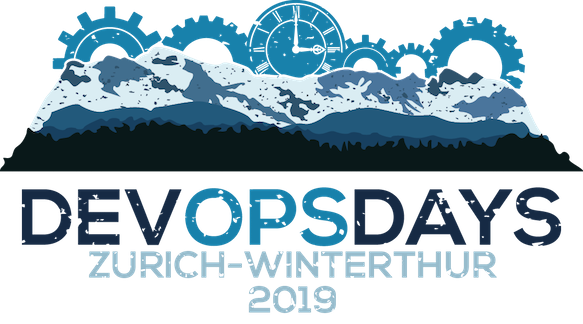News
Swiss Perl Workshop Post Event & Future
20/08/19 10:54 by Lee Johnson
The Swiss Perl Workshop is over for another year. Thanks to all who attended, sponsored, helped out on the day and before, gave talks, and made suggestions. There are a few photos of the event available on the Perl Events Instagram feed.
The videos of the talks are available here. The recordings were largely successful, although one video still needs some putting together due to technical issues - this one will appear later.
Open Discussion
On the second day of the workshop an open discussion took place. This was a continuation of a discussion started back in May, in Bern, and covered several issues about the current state and future of the workshop.
I made a few notes to cover it for those who were not present, as we did not record this discussion due to its impromptu nature. I have split the topics into sections below. Note that the use of "Perl" below should be taken to mean both Perl 5 and Perl 6.
Future Name
The name of the workshop will change from "The Swiss Perl Workshop" to something that better describes the scope of the workshop. The workshop has had a split of talks for at least three years, in the ratio of 1:1:1 of perl5:perl6:general and it was felt that having just "Perl" in the workshop name is not good enough.
There is also the current naming debate around perl6, which may eventually influence the name of the workshop when the decision on the naming of perl6 is resolved. Some suggestions for the workshop name included:
- Swiss Perl and Friends
- The Swiss Perl and Raku Workshop (P&R also equals "Projects and Research")
- Perl Helvetia and Raku Workshop
- Olten Opensource Meetup
- Central European Perl Community Meetup
Some of these suggestions are dependent on the aforementioned perl6 rename, and some of them perhaps broaden the scope of the workshop too much or are again too specific e.g. having the location in the name reduces continuity for an event than doesn't always take place in the same city.
It was generally agreed the key is to define the scope of the workshop more clearly before deciding on the name as concerns on whether such things as it being an open or community event are key in the name.
Another point was to use the word "development" or "programming" in the title as, while the subject of the talks may vary they can all (give or take) be classified as related to software development.
Another point, and one I have considered, is that this is a little bit of history repeating as the original "The Perl Conference" became OSCON, which then lead to YAPC, and now here we are again. Personally I fell history will not repeat as the ecosystem and state of other conferences make it unlikely that any name change will result in a surge in attendance from those from other language communities, and thus not result in a desire to squeeze Perl out.
Collaboration With Other [Perl] Events
In 2016 The Swiss and Austrian Perl Workshops teamed up to hold a joint event. It was suggested that this is another avenue to explore. There are several small workshops run in Europe every year, of the form of one or two days and fewer than a couple of dozen attendees. Historically there were many more of these, but they have fizzled out.
While The Perl Conference (Europe) is traditionally a gathering of European Perl developers (and beyond); it was felt that a couple of smaller workshops could join forces to have a larger workshop than they usually hold, but still maintain the smaller, close-knit, felling.
The Alpine workshop itself could encompass one or more of France, Italy, Germany, Switzerland, Liechtenstein, and beyond.
Another option is to keep Perl in scope but invite another language community. These would be small to start with, include a handful of talks from the invited community, and guest speakers/workshops. More general workshops could also be looked at - it seems there is little appetite for Perl 5 workshops these days, they are poorly attended to the point that they sometimes end up being cancelled.
An open calendar, or at least open to organisers of events, should be available. This would facilitate planning and avoid having events either clash or be too close. In the case of the latter this can sometimes, however, be advantageous from the point of view of keynote speakers who can visit more than one event.
Longer term planning and earlier announcements of events would also be better for attendees and speakers to plan their schedules.
Dates
Smaller workshops are usually consistent, give or take, in their choice of dates. This year's Swiss Perl Workshop was between a choice of three dates due to the availability of the venue. The most democratic approach was taken - a poll, and this ended up with the workshop being scheduled only a few days after The Perl Conference in Riga.
This may or may not have had an affect on the total attendance. We were constrained by the dates the venue was available, and had the other date(s) been picked it is likely that the attendance figures would have been roughly the same.
Schedule
One thing that cannot be denied is that Perl events are now struggling to fill a schedule. Workshops that used to be two or three tracks are now one or two tracks. Larger conferences still hold three days of three tracks, but on closer inspection the tracks start later and end earlier.
The Swiss Perl Workshop has been two days of talks for the previous few years, this will likely change. A single day is still flexible if more talks are submit, as two tracks can be run. The question is whether or not attendees would travel for a single day?
A possibility is to have a second day that is a hackathon / sprint / discussion / actual workshop. This could be half a maker day, hands on workshop, or something else not necessarily Perl specific. More workshops / hand on things could potentially encourage companies to send employees.
Other points made about having a single day is if it would affect the social aspect? Would we have to charge to get the commitment? Another approach for a two day schedule would be to have workshops in the mornings and then talks in the afternoons, rather than one day of each.
Future Locations/Venues
While Flörli Olten is a great venue, and can accommodate up to 50 or 60 attendees, the location isn't the easiest. This, however, is the nature of Switzerland, and holding a workshop in the French or Italian speaking part of the country would likely affect attendance from those in the German speaking part of the country.
The workshop was held in the Vaudois Alps in 2017, and was relatively well attended, though it was suggested that for some this was because the location was an attraction and not necessarily the workshop itself. Some attendees may visit a workshop or conference due to being able to spend time in the country/location around the event. This is fine, but needs to be considered if continuity is a concern.
The obvious choices of Geneva and Zürich would infer some advantages, easier travel options for those visiting the country, and perhaps better backing by corporate attendees, the expense would likely make it more difficult to find a suitable venue.
Future venues to explore could be hack spaces, although most (?) don't have that much space. There are, however, many of these throughout Switzerland. Some of these appear to have potential, although the location issue is again a concern.
Universities and technical schools are another avenue to explore. We had success in 2018 with gibb, and even managed to have students in one of the talks. Although it would be better to involve students more directly - perhaps with workshops.
The key with any future venues is to establish exactly what we need and prioritise those: location, facilities, social aspect, catering, workshops, etc.
What Else Happens In Switzerland?
There are many events happening in Switzerland, from small workshops to large conferences. Basel was the location of EuroPython in 2019, Geneva in 2006.
There have been a number of attempts to take small events and grow them to larger ones, over the years, but these appear to have not been successful. Examples are FrOSCamp and ZeTeCo. These have fallen by the wayside due to problems with location and lack of volunteer/organiser time.
Other events worth investigating include the Mini Debian Conference, although not held in Switzerland since 2013. There is a PostgreSQL meetup every year. CH Open is another, although has become more politicised over recent years. CoSin is the Swiss version of the CCC.
One event gaining good traction in Switzerland, and elsewhere, is devopsdays. These have been held in Geneva and Zürich in the last two years. Software craftsmanship groups was suggested as something to explore, as these relate to general programming and not specific languages.
Many more workshops and conferences can be found on the Swiss Conferences site, although it should be noted that this is not specific to technical workshops/conferences.
Finally
There's a lot to consider here. The intention with the open discussion was to look into ways we can continue to hold the workshop. There is no desire to grow the workshop to one of hundreds of attendees or topics, but rather each year introduce a handful of attendees from other communities to Perl and vice-versa.
While there will always be a core group of attendees and speakers, the rate of attrition means that over coming years it will be more difficult to attract more than a dozen attendees to workshops. That will ultimately lead to the end of the workshop. Several small Perl workshops and meetups throughout Europe have suffered the same fate over the years. Even larger conferences have seen the same. This situation needs addressing.
If you have something to add then please do so. One thing is for sure: the workshop will be back next year, somewhere, and will be known under a new name. Stay tuned.
Again, great thanks must go to our sponsors who made this event possible:
infomaniak
Humanstate
Oetiker + Partner AG
perl services
Open Systems AG
leanux.ch
baumer it-services
Sponsors
Community Sponsors
We are looking for Sponsors.
Blog
 Swiss Perl Workshop 2019
Swiss Perl Workshop 2019









